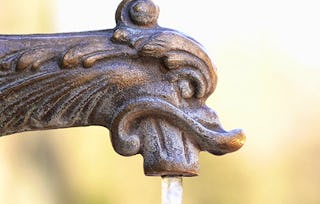Water is important to all of us. Water connects people through place, memory, and community. But in places where water is scarce, like the Western United States, water can also be contentious and divisive. How then do we overcome the challenges associated with increased water scarcity while honoring the diverse perspectives of people who rely on shared water?

Ends soon: Gain next-level skills with Coursera Plus for $199 (regularly $399). Save now.

(27 reviews)
What you'll learn
Understand the unique aspects of water supply and demand issues in the western US and how water systems have adapted to them.
Explain historical and scientific issues around water management in the western US.
Recognize major sources of water supplies in the western US and the impact of individual “water footprints."
Describe some of the ways in which scientists study research questions related to water and climate in the western US.
Skills you'll gain
Details to know

Add to your LinkedIn profile
See how employees at top companies are mastering in-demand skills

There are 5 modules in this course
Are you ready? In this module, we introduce you to how the course works, describe the unique nature of water issues in the American West, and provide important background that will orient you to the region we are studying and the science of hydrology. Let's get started!
What's included
4 videos5 readings1 discussion prompt1 plugin
How did the American West end up with many of the world's largest dams? How does the West's unique legal system for allocating water work? Who gets the right to use water how, and why? We'll cover these topics and more in our module on history, politics, and culture!
What's included
6 videos4 readings2 assignments
Is the West drying up? What happens to a watershed when many of the trees in it die? Let's explore the major scientific issues related to water in the American West. Along the way, we'll hear from a number of experts working on some of the latest cutting-edge research in hydrology, ecology, climate, and more!
What's included
8 videos10 readings2 assignments
The Colorado River is a vital source of drinking water for nearly 40 million people and supplies countless farms across a parched landscape. Cutting through nearly 1,500 miles of mountains and deserts, the Colorado's small size belies the fact that it is one of the most intensively managed and litigated rivers in the world. That makes this river perfect for exploring many of the concepts we've covered already in our course.
What's included
5 videos7 readings2 assignments
In this course, we've emphasized the importance of how the scarcity of water in the American West has shaped so many of the issues around it. In this final module, we'll present some specific cases of complex and often controversial issues that come up because of the unique nature of water in the Western US.
What's included
6 videos6 readings1 assignment1 peer review1 plugin
Instructors


Offered by
Explore more from Environmental Science and Sustainability
 Status: Preview
Status: PreviewPolitecnico di Milano
 Status: Free Trial
Status: Free TrialPepsiCo
 Status: Free Trial
Status: Free TrialBanco Interamericano de Desarrollo
 Status: Preview
Status: PreviewUniversity of Geneva
Why people choose Coursera for their career




Learner reviews
27 reviews
- 5 stars
74.07%
- 4 stars
18.51%
- 3 stars
0%
- 2 stars
0%
- 1 star
7.40%
Showing 3 of 27
Reviewed on Sep 19, 2020
It's a great course on Water in the Western United States
Reviewed on Jan 12, 2020
This is an excellent course and a good overview of the situation. I would like to see more classes on this kind of topic.
Reviewed on Dec 9, 2019
This is the best course I have done so far in Coursera. By far the most interesting and the most useful course.
Frequently asked questions
To access the course materials, assignments and to earn a Certificate, you will need to purchase the Certificate experience when you enroll in a course. You can try a Free Trial instead, or apply for Financial Aid. The course may offer 'Full Course, No Certificate' instead. This option lets you see all course materials, submit required assessments, and get a final grade. This also means that you will not be able to purchase a Certificate experience.
When you purchase a Certificate you get access to all course materials, including graded assignments. Upon completing the course, your electronic Certificate will be added to your Accomplishments page - from there, you can print your Certificate or add it to your LinkedIn profile.
Yes. In select learning programs, you can apply for financial aid or a scholarship if you can’t afford the enrollment fee. If fin aid or scholarship is available for your learning program selection, you’ll find a link to apply on the description page.
More questions
Financial aid available,
¹ Some assignments in this course are AI-graded. For these assignments, your data will be used in accordance with Coursera's Privacy Notice.





